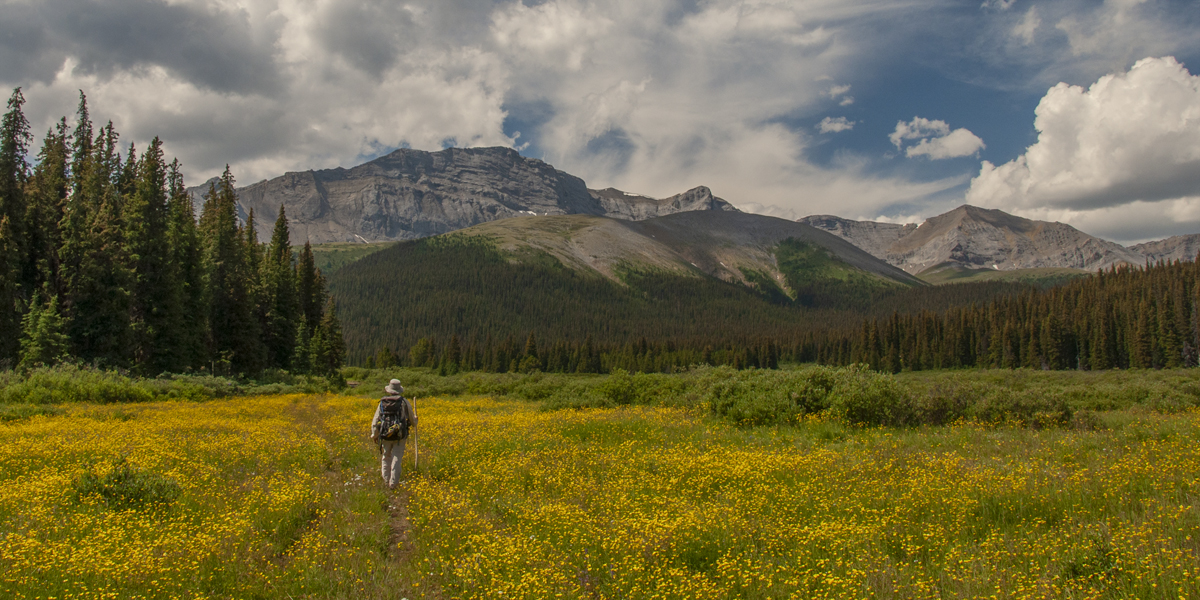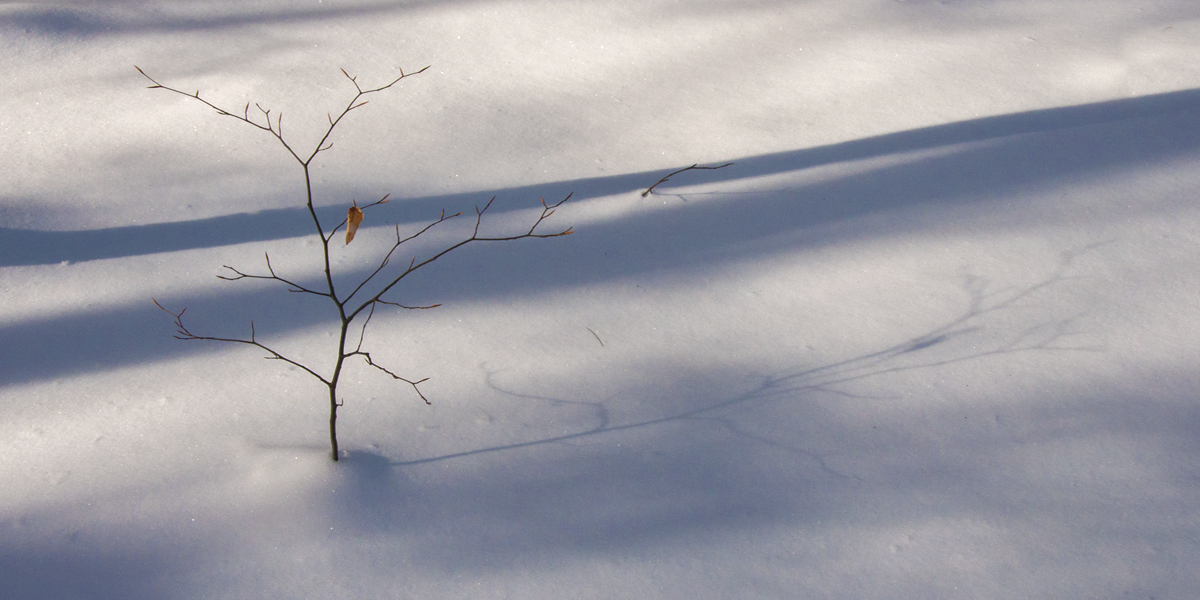|
Ray Rasmussen
Conversations with Issa
I’ve resided in a remote Ontario cottage for several weeks. Yesterday, a blizzard was blowing and so I stayed in and enjoyed several conversations with Issa via the medium of his translators. As I was writing, I noticed a particularly ominous spider web and he offered this haiku on compassion . . .
Don’t worry spiders
I keep house
casually
~ Issa
So instead of engaging in my usual spider mayhem by employing the broom as a weapon of web destruction, I keep my eye on the spider and have moved my desk to a comfortable distance while I struggle with a commentary on Issa’s travel journal, Oraga Haru (The Spring of My Life).
Today the sun is out and I don snowshoes and come across numerous tracks: wild turkey, fox, deer, and porcupine . . . and find myself saying aloud . . .
Don’t worry turkeys
I hunt
quite ineptly
As Issa and I move through this mixed hardwood forest we come across a wildflower meadow, which brings to mind a walk last summer with Nancy, my partner, whom I'm missing.

Issa offers these thoughts . . .
we walk on the roof of hell,
gazing at flowers.
~ Issa
No wildflowers in winter, but I'm taking photographs of the long blue-grey tree & shrub shadows cast by the setting sun. Yes, Master Issa, it's akin to enjoying flowers while ignoring humankind's woes.

we reside in a world of plenty,
yet, we complain
On my last evening with Issa, I look out at the trees stripped of leaves, think about how for a month I’ve stripped off routines, obligations, news reports and friends – no phone or email here – and felt the dual pains of loneliness and regrets.
And Issa who had many pains to overcome, chooses to offer his thoughts on transcendence . . .
What good luck!
Bitten by
This year’s mosquitoes too.
~ Issa
True enough. It's been a good winter retreat for beauty, Issa's companionship and contemplation.
What good luck!
yet another
biting-cold day
Notes:
- Haibun previously published in A Hundred Gourds.
- Haiku in italics by Issa (tr. Robert Hass).
- My commentary on Issa’s haibun Oraga Haru
- The two Translations of Oraga Haru I read and relied on are: Sam Hamil, Kobayashi Issa: The Spring of My Life and Selected Haiku & Nobuyuki Yuasa, The Year of My Life: A Translation of Issa’s Oraga Haru.
- If you enjoy Issa's haiku, a website I often visit is David G. Lanoue's "Haiku of Kobayashi Issa."
Comments on this Haibun:
From time to time, I enjoy using the haiku of the Japanese Masters in one of my pieces, both to display some of the writing my favorite haijin (but applied to my context), and to learn about their styles by imitating them. So all of my haiku herein are derivatives. (I've read that most if not all writing is necessarily derivative, but that's an issue for an essay which this isn't.)
A danger in using Basho or Issa or any other haiku poet exemplar, ancient or contemporary, is that one's haiku tend to pale in comparison.
A positive result of doing this is that I felt as if I had a conversation with a great poet from the distant past.
|

